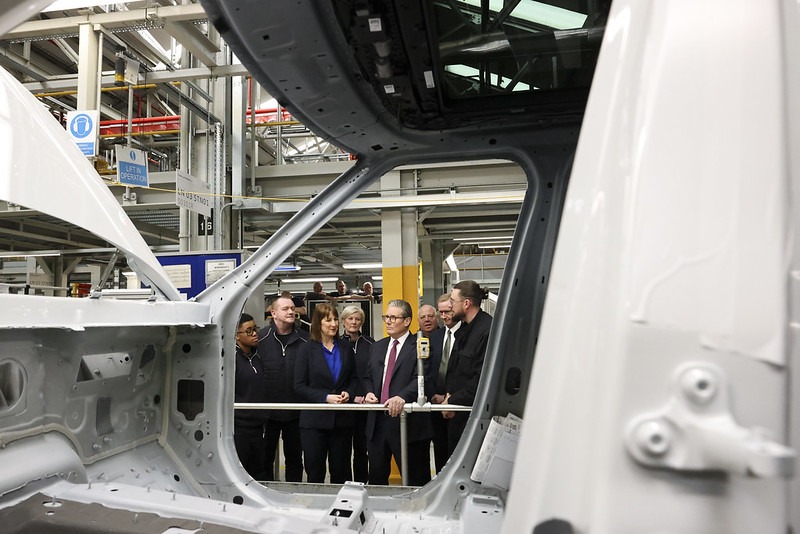West Midlands car manufacturers fear further decline after Trump imposes tariffs on car imports
A sense of worry has spread among car manufacturers in the West Midlands after the region looks set to be most affected by Trump’s car import tariffs.
US President Donald Trump announced on 2 April that the tariff on car imports into the country will be raised to 25% – a move which looks set to affect the UK car industry.
The US is currently the second-largest importer of UK-manufactured cars, after the European Union.
The West Midlands is home to a number of key car manufacturing companies which contribute to these exports to the US, including Jaguar Land Rover, Aston Martin, Bentley, and Rolls Royce.
Jaguar Land Rover, who are based in Coventry and Solihull, relies on the US market for a quarter of its total revenue
The UK’s national car industry has already been faced with decades of decline, with the West Midlands remaining as one of the last regions with a strong hub of car manufacturing.
Jaguar Land Rover, who are based in Coventry and Solihull, relies on the US market for a quarter of its total revenue.
Following Trump’s announcement, the company has decided to pause US shipments while it conducts an assessment of the impact of the tariffs.
Robert Mills, a semi-retired automotive consultant from Solihull, told the Guardian that Jaguar Land Rover was “an icon for Solihull and it was synonymous with Britain”. He warned that the tariffs “will kill Jaguar Land Rover here in town”.
The Institute for Public Policy Research has warned that the tariffs will put 25,000 UK jobs at risk – a figure which Prof Bailey has argued is an underestimation that only accounts for downsizing
Economist Professor David Bailey, currently based at the University of Birmingham, has described this as a “very worrying time’” for the West Midlands car industry. The Institute for Public Policy Research has warned that the tariffs will put 25,000 UK jobs at risk – a figure which Prof Bailey has argued is an underestimation that only accounts for downsizing.
Bailey also warned that plants are at risk of shutting down fully later down the line, as the industry continues to be threatened by rising costs and job losses.
The Government has however eased rules on the sale of electric vehicles in the wake of Trump’s car import tariffs.
Previously, 28% of cars sold in the UK in 2025 had to be electric vehicles, with this target rising year-on-year until 2030, when the sale of diesel and petrol cars will be banned.
Prime Minister Sir Keir Starmer has announced that these targets will now be more flexible, meaning if a company does not meet the threshold in a particular year, they can make up the difference in sales the following year. The fine for each vehicle not sold has also been reduced to £12,000 from £15,000.
These changes will hopefully bring a glimpse of hope to an already-struggling car industry – one that looks set to face extra challenges in the weeks and months ahead as Trump continues to raise tariffs globally.

Comments